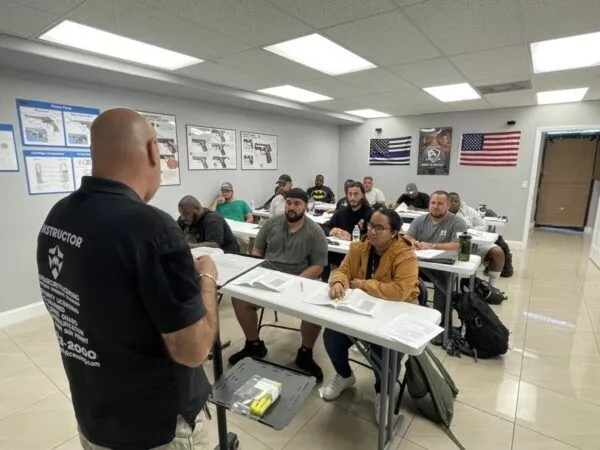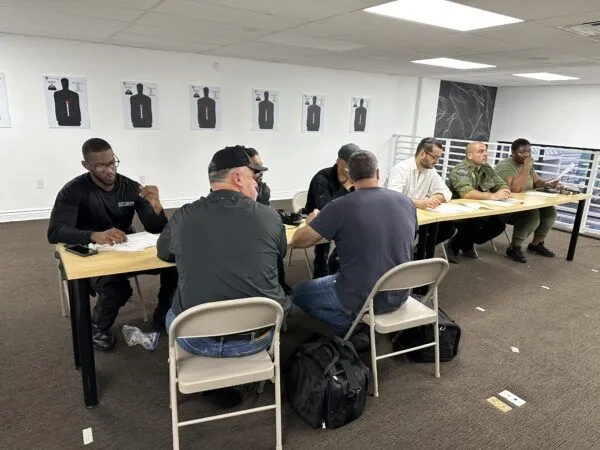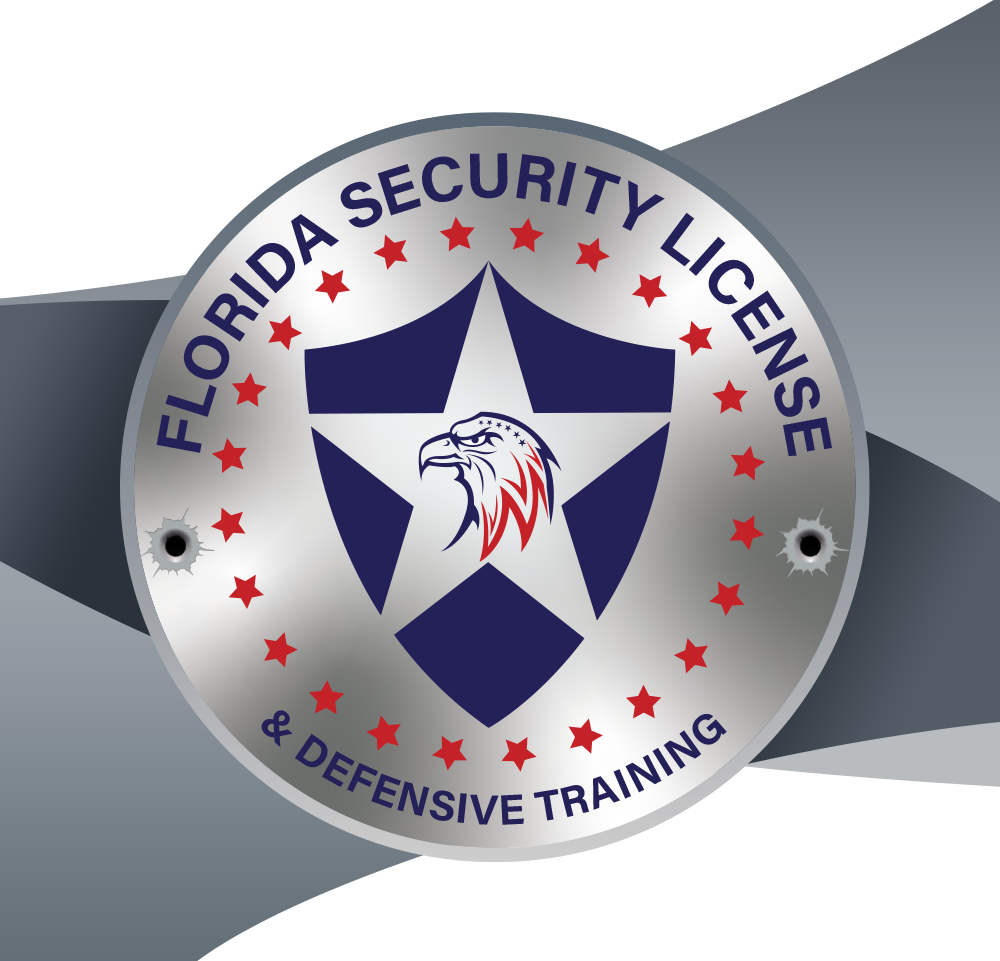Introduction
Becoming a security guard in Florida is a rewarding career choice that provides stability, growth, and opportunities to work in diverse settings. However, navigating the process of obtaining a security license can feel overwhelming without the right guidance. Whether you’re seeking a security guard license course for unarmed work or pursuing a Class G security license to work as an armed guard, understanding the steps is crucial.
This guide breaks down the process of how to become a security officer in Florida, including the requirements, training, and tips for success. Follow these steps to kickstart your career in security and join the growing workforce of certified security professionals in the state.
Do You Need a License to Be a Security Officer in Florida?
Yes, to work legally as a security guard in Florida, you must obtain the appropriate license. The Florida Department of Agriculture and Consumer Services oversees the certification process, ensuring all security professionals meet state-mandated requirements.
There are two primary security licenses:
- Class D Security License: Required for unarmed security officers, involving 42 hours of training.
- Class G Security License: Required for armed security officers, requiring firearms training and a current FL Class D security license as a prerequisite.
Obtaining these licenses demonstrates your readiness to protect people, property, and businesses, opening the door to various career opportunities.
Steps to Become a Certified Security Guard in FL
Meet Florida Requirements
Before you can begin your career, you must meet Florida’s minimum eligibility criteria:
- Be at least 18 years old for unarmed roles and 19 for armed security positions.
- Possess a high school diploma or equivalent.
- Be a U.S. citizen or legal resident, for a class D license have been granted authority to work in this country by the Department of Homeland Security, U.S. Citizenship and Immigration Services.
- Pass a background check, including fingerprinting and a criminal history review.
Meeting these requirements ensures you are legally eligible to work as a security guard in Florida.

Choose the Type of Security License
Florida offers two main licenses for security professionals:
- Class D Security License: For unarmed security guards.
- Class G Security License: For armed security guards who have completed firearm proficiency training.
Understanding your career goals will help you decide which license to pursue first. If you plan to carry a firearm, you must first complete the FL Class D security license training before moving on to a Class G security license course.
Complete the required training
Training is a critical step in becoming a licensed security guard. Enroll in a state-approved security guard license course to gain the necessary skills:
- Class D Security License Training: Includes 42 hours of professional instruction, covering topics such as patrol techniques, emergency response, legal regulations, and ethics.
- Class G companion Security License Training: Includes firearms safety, marksmanship, and proficiency requirements for armed roles.
Completing these training programs ensures you are fully prepared to perform your duties effectively and safely.
Apply for a security guard license
Once training is complete, follow these steps to apply for your security guard license:
- Submit an Application: Apply online through the Florida Department of Agriculture and Consumer Services or at an approved office.
- Provide Documentation: Include proof of training completion, identification, and any additional required paperwork.
- Pay the Fees: Submit the required application fees for processing.
- Pass Background Screening: Your background check must be approved before your license is issued.
Once approved, you’ll receive your license and can officially work as a security guard in Florida.
Explore Opportunities For Armed Security
If you’re considering a career in armed security, obtaining a Class G security license is essential. Armed security guards typically earn higher pay and have access to more specialized roles in industries such as:
- Financial institutions
- Government facilities
- Event security
- Private investigations
Armed security positions require ongoing firearms proficiency training to maintain certification, so staying up to date is crucial.
Prepare for interviews
After obtaining your license, the next step is securing a job. Here are tips to help you succeed in interviews:
- Showcase Training: Highlight your certifications, including FL Class D security license and any specialized training.
- Demonstrate Skills: Emphasize your ability to handle emergency situations, observe security protocols, and communicate effectively.
- Exhibit Professionalism: Dress appropriately, arrive on time, and maintain a confident yet approachable demeanor.
Get hired
Once you pass your interview, you’re ready to start working as a security guard. Many employers offer on-the-job training to help you adapt to the specific needs of the role.
Renew Your License When Necessary
Security licenses in Florida require regular renewal to stay active. Keep track of expiration dates and complete any necessary requalification or continuing education. For armed security professionals, annual firearms training is required to maintain a Class G security license.
Tips for Success as a Security Guard
Becoming a successful security guard requires ongoing effort and dedication. Follow these tips to excel in your role:
- Stay Updated: Keep your training and certifications current to meet state requirements.
- Improve Communication: Clear communication is essential when interacting with clients, colleagues, and the public.
- Focus on Physical Fitness: Maintaining fitness ensures you can respond quickly and handle physical demands.
- Remain Observant: Attention to detail is critical for identifying risks and maintaining a safe environment.
- Enhance Skills: Consider additional training or certifications, such as first aid or defensive tactics, to stand out in the industry.
By adopting these habits, you can build a successful, long-term career in the security industry.
Conclusion
Becoming a licensed security guard in Florida involves meeting requirements, completing approved training, and obtaining the proper certifications. Whether you’re pursuing a Class D security license for unarmed roles or a Class G security license for armed security, the steps outlined above will guide you toward success.
Stay proactive, follow through with renewals, and continue improving your skills to excel in the industry. For more information or to enroll in an in-person or security guard online license course, visit our website and take the next step toward a rewarding career in security.





